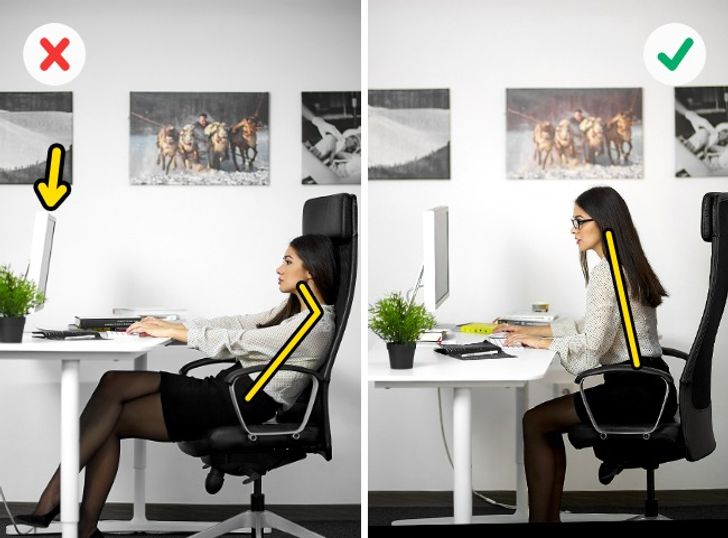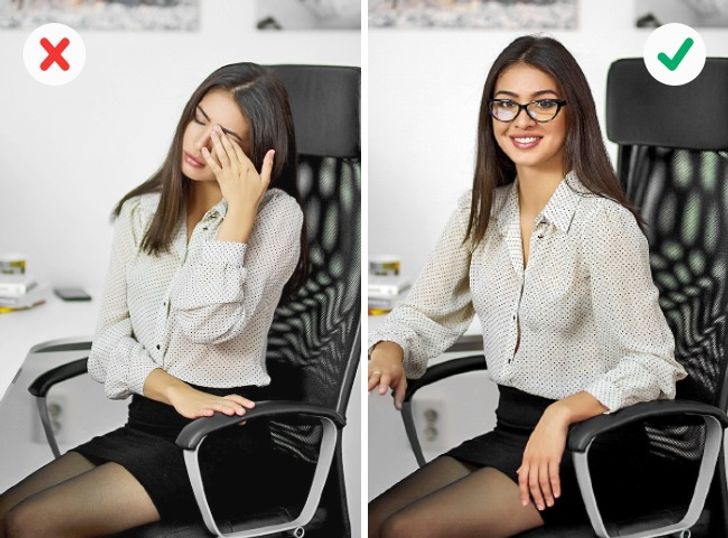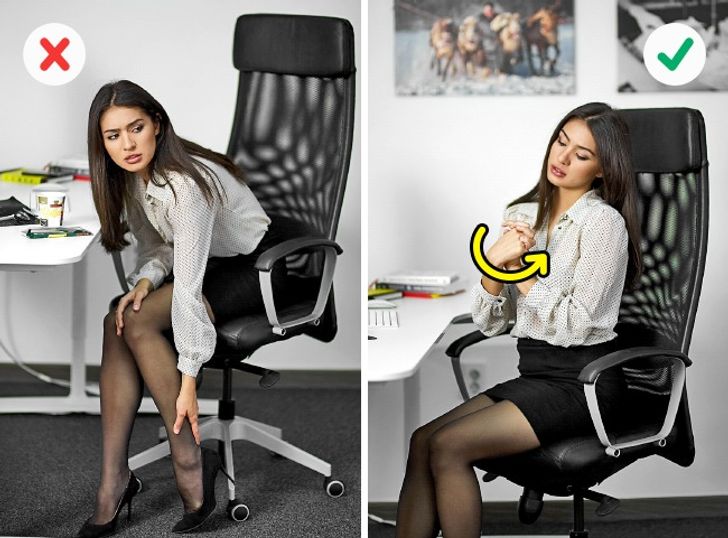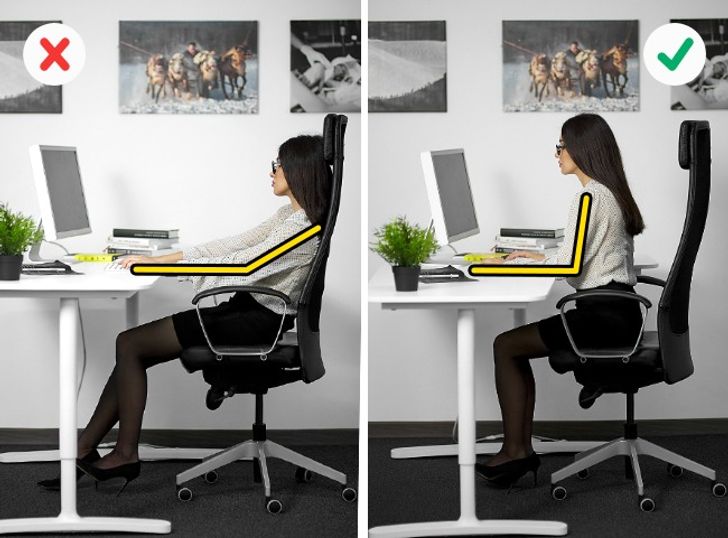2,013 3 minutes read
Health & Fitness
When you work at the computer, your hands are in constant tension. The load and the wrong position may cause dull and nagging pain as well as a feeling of numbness in the hands in the morning.
The position of the shoulders and forearms will be correct if the keyboard and mouse are at elbow level. Your wrists should be straight, not turned to the sides. Your hands themselves should be bent at the elbows at an angle of 90° and freely lie on the table.
Sources: mayoclinic, office-ergo, berkeley
Neck pain

In order to avoid neck and head pain, it’s important to properly position your monitor. If it’s too low, then you have to bend your back or slide down the chair. This increases the load on the front edges of the intervertebral discs and can lead to a hernia or protrusion.
Sit on a chair, close your eyes, and relax. When you open them, the point at which the center of your screen should be located will be just before you. If necessary, use a stand under the monitor so it’s at eye level. The screen should be right in front of you and not to the side so the load on your neck and eyes is minimal.
Sources: mayoclinic, webmd, spine-health
Sore and tired eyes

When you’re working on the computer for too long, there may be a so-called computer vision syndrome: blurred vision, dryness, redness. Then – headache and irritation.
- Position the monitor again. Doctors believe that the optimal position of the center of the monitor is at eye level, at a distance of about 50 cm from your face.
-
Remove the glare from the screen. If your computer stands next to a window, move it or draw the curtain. Adjust the brightness, contrast, and font size.
-
It will be useful to wear special glasses which screen out part of the spectrum. In this way, your eyes will get less tired, and you’ll keep your eyesight.
-
Don’t forget about eye exercises. You can look out the window or “scan” the room with your eyes every hour for at least 20 seconds. You can also do simple eye exercises.
Sources: webmd, allaboutvision, webmd
Fast fatigability

If a person leads a sedentary lifestyle and is fond of fatty sweet food, cholesterol gathers on the inner walls of their vessels. The veins are stretched, and the valves stop coping with their function.
Unpleasant sensations appear: pains, a feeling of fatigue in the feet and legs, swelling of the legs, and high blood pressure. Symptoms usually occur late in the evening.
Make at least a little time for exercises every day. Do simple gymnastics that will take no more than 15 minutes. Try to walk more instead of riding a car or using public transport. And, most importantly, eat healthily.





